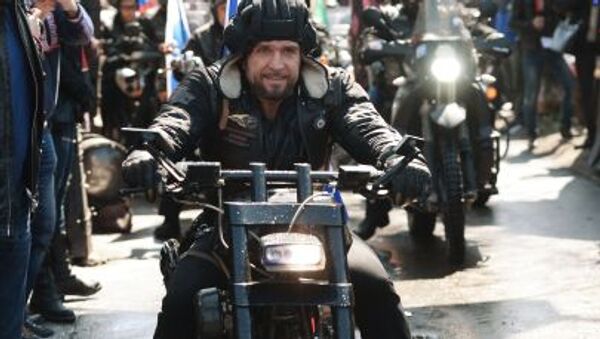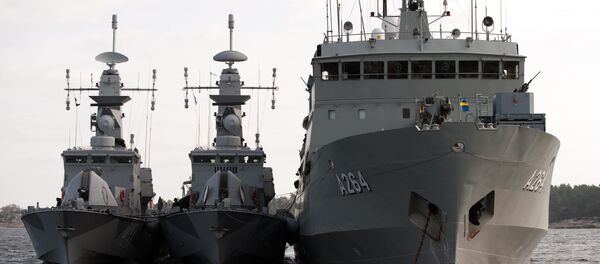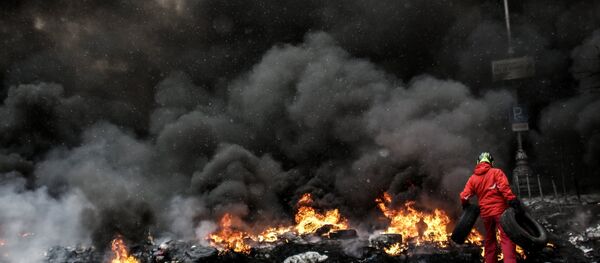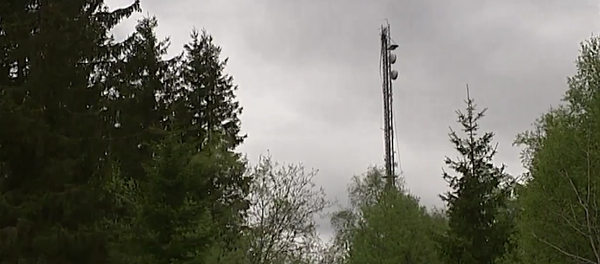Today, Night Wolves generally turn down interview requests from "hostile" Western media, but for Juha Portaankorva an exception was made for old times' sake. "Surgeon" met the Finnish journalist as an old friend.
"The American way of life… Yeah, this is not our way, you know. Ours is different, and I'm very glad I have been able to show it. Russian motorcyclists must have a spirit of their own, not America's," Zaldostanov said. "Night Wolves have not illicitly copied the Western motorcycle culture, but have created our own Russian style."
Unlike any stereotypical motorcycle gang, Night Wolves moved away from themes like drugs and organized crime and became involved in political activism.
In his film, Portaankorva stressed the Night Wolves' active pro-Russian stance in the Ukrainian conflict. "Surgeon" himself was born in what now is Ukraine and spent his childhood in Sevastopol. Like many people of his generation, he considers Russia and Ukraine a united homeland.
"I would love Finland to stay a good neighbor of Russia. I would love it if a small part of Russia lived on in Finland. I would love the Finns to trust Russia more than America," Zaldostanov said as quoted by Yle.
The motorcycle club Night Wolves was founded near the breakup of the Soviet Union in 1989 and is estimated to have a few thousand members. The club's leader Alexander Zaldostanov is originally a dentist by profession, hence the nickname "Surgeon." Zaldostanov is a personal friend of Russian President Vladimir Putin, and was awarded the Medal "For the Return of Crimea" for his actions in "helping Crimeans to self-determine."
Of yet, Zaldostanov has been personally sanctioned by several governments, including the United States and Canada. In April 2015, he and the Night Wolves were refused entry to the European Union at the Polish border.
«Ночные волки» возложили цветы к памятнику советскому Воину-Освободителю в Праге pic.twitter.com/TrDCYml9lL
— Сергей Бухало (@buh_lik) 12 мая 2016 г.





